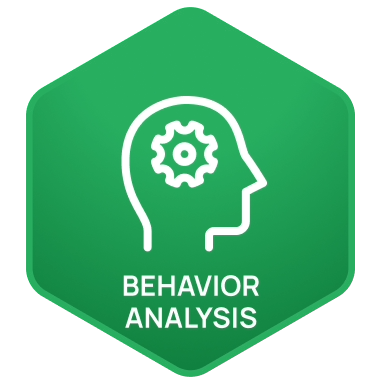About Job
Job Title: BCBA Senior Clinician
Job Classification: Full-Time (1.0), Exempt Employee
Reports To: Senior Clinical Supervisor
Salary: $83,125 base salary + $5,000 signing bonus and benefits!
Billable Requirement: 32.5 hrs per week
Location: Remote (work from home)
Company Description:
Behavior Change Institute (BCI), a nationally recognized service agency and "Top Workplace" honoree for a decade by the Albuquerque Journal, specializes in Applied Behavior Analysis (ABA) therapy for individuals with autism and their families. Based in New Mexico, we provide care in home, school, clinic, and community settings, with a strong commitment to expanding access to high-quality treatment—especially in rural and underserved communities.
Through our TeleBehavioral Health Service Model, we have enhanced access to care in even the most remote areas, serving patients of all ages and abilities. If you're looking for an innovative and supportive agency to grow with, we invite you to explore careers at BCI!
Telehealth Advantage
Our remote work opportunities empower clinicians to focus more on the clinical care they love while eliminating the burden of long commutes for patient visits. By leveraging both real-time (synchronous) and recorded video review (asynchronous modalities), clinicians gain greater control over their schedules, with the added flexibility to supervise treatment during non-treatment hours. In the asynchronous model, RBTs record sessions, which clinicians can review at a later time, allowing for detailed feedback, effective supervision, and high-quality clinical management. Many of our funders recognize the value of these activities, supporting critical clinical oversight even when the patient is not present. This model enhances accessibility for both patients and providers, ensuring high-quality care while promoting a sustainable and balanced work experience for clinicians. With tele-health, we create a more efficient and effective way to deliver care—benefiting patients through convenient access and supporting clinicians in achieving greater flexibility and job satisfaction.
Job Summary:
Under the direction of the Senior Clinical Supervisor, the Senior Clinician, will oversee and actively participate in the following essential clinical duties as outlined below. These duties are inclusive of but not exclusive of the Senior Clinician responsibilities. It is BCI’s expectation that the Senior Clinician will accept other duties and or projects assigned. It is also BCI’s expectation that the Senior Clinician will represent the best interests and philosophy of BCI.
Essential Duties Include the Following:
Clinical:
- Provide Behavior Consultation to clients over tele-health and carry a caseload assigned by the Senior Clinical Supervisor.
- Provide support, instruction, and feedback to families and caregivers in regard to managing challenging behavior.
- Conduct descriptive behavioral assessments.
- Interpret results of behavioral assessments and design ethical and effective behavior analytic interventions for clients, according to the requirements put forth by the contracting agencies and BCI.
- Follow all required deadlines for report writing and report submission as set forth by contracted agencies and BCI.
- Present treatment plans at regular caregiver meetings.
- Train and supervise behavior technicians on behavior intervention plans, data collection, required paperwork, and individual needs of clients and their families.
- Submit hours daily through BCI’s secured patient portal.
- Submit client data to BCI on a prescheduled date.
- Report any concerns about a program to the Senior Clinical Supervisor.
- Provide training regarding BCI protocols.
- Coordinate all required staff training of the tutor prior to starting with the client.
- Participate in BCI trainings, staff meetings, or workshops.
Required Meetings:
- Monthly BCI Clinical Meetings
- Monthly Peer Consultation Meeting
- Monthly ECHO
- Supervision Meetings with Senior Clinical Supervisor on a weekly/bi-weekly or monthly basis
Supervisory Responsibilities:
Supervision and Mentorship of BCI’s Clinical Interns
- BCI’s Internship program is integrated within our clinical services. Senior Clinicians will have the opportunity to positively impact the Interns’ experiences by providing support and quality oversight of their field experience. Under the guidance of the CEO of Clinical Operations, Senior Clinicians will support the development of our culture of excellence, accountability, critical thinking, and excitement by engaging in the following with Clinical Interns:
- Provide an in-depth supervision experience for interns by means of co-case management
- Review and provide feedback on written materials (e.g., assessments, behavior protocols, data sheets) to ensure Interns are producing conceptually systematic, grammatically correct assessments and reports
- Provide ongoing written and vocal feedback on Interns’ behavior-analytic teaching practices
- Model and coach interns on effective supervision practices, problem solving, and decision making skills to be effective leaders and supervisors
- Create a learning environment where our interns are engaged, energized, and motivated to strive for continued improvement.
Required Skills and Abilities:
- Ability to use applied behavioral analysis principles. Ability to utilize positive and negative reinforcement for shaping behavior. Ability to take and analyze data. Ability to utilize least restrictive measures in avoiding escalated situations. Ability to use verbal interventions that involve use of empathy, compassion, positive behavioral programming, respect, openness, client-centered approach, as well as best practice interventions. Ability to engage in active listening. Ability to analyze and separate out individual versus systemic issues. Ability to abide by the BACB guidelines pertaining to the BCBA such as the code of ethics.
Education and/or Experience:
- Master’s degree from a four-year college or university in psychology, education, social work or behavioral science.
- A Board Certified Behavior Analyst through the Behavior Analyst Certification Board (BACB). A current certification from the BACB in good standing.
- Three years of experience working with persons with intellectual disabilities with challenging behaviors is required. Experience rendering ABA treatment under health insurance contracts and within family homes is required.
Writing Skills
Ability to produce careful documentation for employee human resource files, in accordance with best practice. Ability to write in English and produce written material with appropriate grammar preferred.
Language Skills
Ability to effectively communicate information and respond to questions from your direct supervisor, employees, job candidates and community partners when appropriate.
Mathematical Skills
Ability to add, subtract, multiply, and divide in all units of measure, using whole numbers, common fractions, and decimals.
Reasoning Ability
Ability to interpret a variety of instructions furnished in written, oral, pictorial or schedule form. Ability to demonstrate good judgment and efficiency during decision-making.
Other Skills
- Ability to work collaboratively with others. Ability to prioritize tasks and demonstrate efficient use of time.
- Ability to portray a professional, polished appearance and communication. Excellent technological skills and ability to learn new systems quickly using cloud based servers, software and online applicant tracking systems.
The physical demands described here are representative of those that must be met by an employee to successfully perform the essential functions of this job. Reasonable accommodations may be made to enable individuals with disabilities to perform the essential functions.
While performing the duties of this job, the employee is frequently required to walk, sit, stand and drive. The employee is also required to use their hands and reach with their arms. The employee must occasionally lift and/or move up to 50 pounds. Specific vision abilities required by this job include close vision, distance vision, peripheral vision and ability to adjust focus.
Benefits:
- Performance-based pay initiative (quarterly)
- Flexible scheduling
- Exceptional mentorship and training program
- Health Insurance
- Dental Insurance
- Vision Insurance
- Basic Life Insurance
- 401-K Retirement Plan
- Certified Financial Planning
- Infant at Work Program
- Accident/Hazard Insurance
- Dependent Care Flexible Spending Account
- Generous PTO and Compensatory Time Benefits
- Annual Professional Development Stipend
- Opportunities to work on research and development projects
- Technology to access our state-of-the-art clinical portal, where you can attend training, access curriculum and communicate with clinical experts!
- Ongoing opportunities for career growth and advancement (internal CEUs)
Behavior Change Institute is an equal opportunity employer. All qualified applicants will receive consideration for employment without regard to age, ancestry, color, family or medical care leave, gender identity or expression, genetic information, marital status, medical condition, national origin, physical or mental disability, political affiliation, protected veteran status, race, religion, sex (including pregnancy), sexual orientation, or any other characteristic protected by applicable laws, regulations, and ordinances.
xAyffMc3UZ
Professional Field
 Behavior Analysis
Behavior Analysis Social Work
Social Work Other Behavioral, Mental, or Healthcare Field
Other Behavioral, Mental, or Healthcare Field









